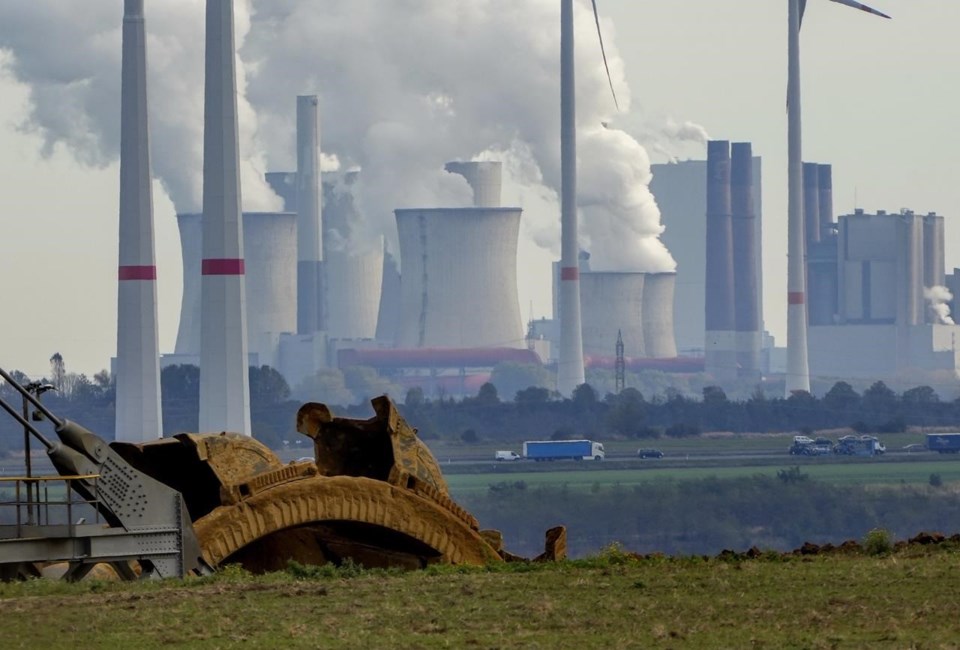BERLIN (AP) — Germany cut its greenhouse gas emissions by almost 2% last year, beating previous estimates but still falling far short of the cuts needed to meet its medium-term climate goals, officials said Wednesday.
Data published by the German Environment Agency showed the country released the equivalent of 746 million metric tons of carbon dioxide in 2022, down from 760 million tons the previous year.
The figures, which are still preliminary, were better than an independent estimate published in January, largely due to bigger-than-expected cuts in the industrial sector. German factories saw a slump in production due to the war in Ukraine last year, partly due to higher energy costs.
But the cut in Russian fossil fuel supplies also prompted the German government to reactivate shuttered coal and oil power plants, pushing up emissions in the energy sector.
“The war has thrown a wrench into the works,” the environment agency's head, Dirk Messner, told reporters in Berlin.
He noted that Germany now needs to cut emissions by 6% every year until 2030 to achieve a reduction of 65% compared with 1990 levels.
A government spokesperson, Christiane Hoffmann, said Germany will “do everything” to achieve its long-term target of reducing emissions to net zero by 2045.
The government “has already set in motion a number of measures and planned laws that will help to further reduce CO2 emissions,” she said. “This report shows how necessary that is."
Europe’s biggest economy is among the world’s ten biggest emitters and the center-left government of Chancellor Olaf Scholz has put in place ambitious programs to boost clean energy and cut emissions across different sectors.
The new data put a renewed spotlight on the transport sector, which saw emissions rise last year. Transport Minister Volker Wissing has recently been at the center of a spat over European Union plans to end the sale of cars with combustion engines, which he opposes.
Messner made clear that there is no way around replacing 15 million conventional vehicles with electric models by 2030, if Germany wants to achieve its targets.
In the short term, the introduction of a universal speed limit on German highways would help close the emissions gap, he said.
Several environmental groups reacted angrily to the new emissions figures and threatened further legal action, arguing that the German government is bound by law to meet specific targets in each sector.
Germany's top court ruled two years ago that the previous government had to set clearer targets for the period after 2030 to reduce the burden of curbing climate change on younger generations.
Frank Jordans, The Associated Press



